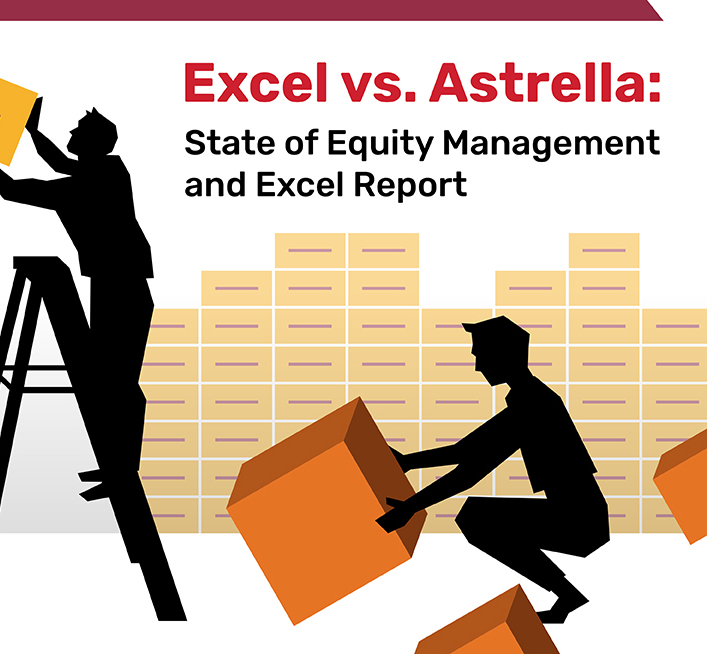With the rise of the global economy, startups are increasingly looking beyond their home countries to raise capital. Entrepreneurs must know this presents several regulatory challenges to ensure a successful fundraising process. In this article, we will discuss the different regulatory frameworks that startups need to navigate, the challenges of cross-border compliance, recent developments in regulation, and strategies for successful fundraising in a global market.
Different Regulatory Frameworks
Startups looking to raise capital from investors in different countries must navigate complex regulatory frameworks. Each country has its own set of rules and regulations governing the issuance of securities, including those offered by startups. This can make the fundraising process challenging and time-consuming for entrepreneurs unfamiliar with each jurisdiction’s legal and regulatory environment.
- In the United States, the Securities and Exchange Commission (SEC) regulates the issuance of securities, including those offered by startups. This includes cross-border offerings, which must comply with the SEC’s rules and regulations. The SEC requires startups to register their securities with the agency and to provide investors with detailed information about the company, its management team, and the risks associated with the investment.
- In the European Union, the Markets in Financial Instruments Directive (MiFID II) governs the issuance of financial instruments, including those offered by startups. This includes cross-border offerings, which must comply with the MiFID II rules and regulations. MiFID II imposes strict requirements on the information that startups must provide to investors, including details about the risks associated with the investment and the fees and commissions charged.
- In the United Kingdom, the Financial Conduct Authority (FCA) regulates the issuance of financial instruments, including those offered by startups. This includes cross-border offerings, which must comply with the FCA’s rules and regulations. The FCA requires startups to obtain authorization before offering securities to investors and providing them with detailed information about the company and the risks associated with the investment.
- In Canada, the Canadian Securities Administrators (CSA) regulates the issuance of securities, including those offered by startups. This includes cross-border offerings, which must comply with the CSA’s rules and regulations. The CSA requires startups to file a prospectus with the agency and to provide investors with detailed information about the company, its management team, and the risks associated with the investment.
- In Australia, the Australian Securities and Investments Commission (ASIC) regulates the issuance of securities, including those offered by startups. This includes cross-border offerings, which must comply with the ASIC’s rules and regulations. The ASIC requires startups to lodge a prospectus with the agency and to provide investors with detailed information about the company, its management team, and the risks associated with the investment.
Cross-Border Compliance
In addition to understanding the legal and tax implications of operating in multiple jurisdictions, startups raising capital from international investors must also ensure compliance with local data protection and privacy laws. These laws vary from country to country and can impose strict requirements on how businesses collect, store, and use personal data. Failure to comply with these laws can result in significant fines and damage a startup’s reputation.
Another challenge startups face is navigating complex currency exchange regulations. When raising capital from investors in different countries, startups need to be aware of the exchange rates between their home currency and the currencies of the countries where they are raising capital. These exchange rates can fluctuate significantly and have a material impact on the value of the investment. Startups must also be aware of the tax implications of currency exchange, as they may be liable for taxes on any gains or losses resulting from currency fluctuations.
To successfully navigate the regulatory challenges of cross-border startup fundraising, startups should seek legal and financial advice from experts familiar with the legal and regulatory frameworks in the countries where they are raising capital. These experts can help startups structure their fundraising transactions to minimize their legal and tax risks and ensure compliance with local laws.
Challenges in Data Protection
Startups raising capital from international investors face significant challenges ensuring compliance with diverse data protection laws and regulations across jurisdictions. Each country has its own set of data protection laws that govern personal data collection, storage, and use. These laws can vary significantly in scope and requirements, making it difficult for startups to navigate the complex regulatory landscape.
In addition to complying with the data protection laws of each jurisdiction in which they operate, startups must also understand and address the specific data protection requirements for startups. These requirements may include obtaining consent from users before collecting their data, implementing appropriate security measures to protect the data, and providing users with access to and the ability to correct or delete it.
Startups must also balance the need for data collection and processing with the protection of user privacy. Collecting and processing user data is essential for startups to understand their customers, improve their products and services, and target their marketing efforts. However, startups must also take steps to protect the privacy of user data, such as anonymizing or encrypting the data and limiting access to the data to authorized personnel.
Navigating the complexities of data transfer regulations is another challenge for startups raising capital from international investors. Data transfer regulations govern the transfer of personal data from one country to another. These regulations can vary significantly in their requirements, and startups must carefully consider each jurisdiction’s data transfer regulations to ensure compliance.
Finally, startups must also address the potential risks and liabilities associated with data breaches and other security incidents. Data breaches can result in the unauthorized access, use, or disclosure of personal data, which can significantly impact a startup’s reputation and business operations. Startups must implement appropriate security measures to protect their data from unauthorized access and have a plan in place to respond to data breaches and other security incidents.
Recent Developments in Regulation
In recent years, there have been several significant developments in regulation that have impacted cross-border startup fundraising. These developments include:
- The European Union’s General Data Protection Regulation (GDPR), enacted in 2018, imposes strict requirements on how businesses collect, store, and use personal data. This has made it more challenging for startups to comply with data protection laws when raising capital from investors in the EU.
- The U.S. Securities and Exchange Commission (SEC) has proposed new rules requiring startups to provide more information about their business and financials when raising capital from investors. These rules are designed to protect investors from fraud and other abuses.
- The U.K. Financial Conduct Authority (FCA) has issued guidance on how startups should comply with data protection laws when raising capital from investors. This guidance is designed to help startups avoid the risks of data breaches and other security incidents.
- The Australian Securities and Investments Commission (ASIC) has released a new regulatory guide on how startups should raise capital from investors. This guide provides practical advice on complying with the Corporations Act and other relevant laws.
- The Monetary Authority of Singapore (MAS) has issued guidelines on regulating digital token offerings. These guidelines are designed to protect investors from the risks of fraud and other abuses in the digital token market.
These are just some of the recent developments in regulation that have impacted cross-border startup fundraising. Startups looking to raise capital from investors in different countries must be aware of these developments and ensure that they comply with all relevant laws and regulations.
Strategies for Successful Fundraising
Despite the challenges, there are several strategies that startups can employ to raise capital from investors in different countries successfully.
One key strategy is understanding the local regulations and requirements in each jurisdiction where you seek investment. This includes understanding the legal and tax implications of operating in each country and the specific data protection and privacy laws. By understanding the local regulations, you can structure your fundraising efforts to comply with all applicable laws and regulations.
Another essential strategy is to choose the proper legal structure for your startup. The legal structure you choose will affect your tax liability, your ability to raise capital, and your ongoing compliance obligations. It is essential to consult with legal counsel to select the best legal structure for your startup.
Convertible notes can also be helpful for startups raising capital from international investors. Convertible notes are a type of debt that can be converted into equity later. This can be an attractive option for investors who are not sure about the long-term viability of a startup, as it gives them the option to convert their debt into equity if the startup is successful.
Partnering with local investors can also be a helpful strategy for startups raising capital from international investors. Local investors can provide valuable insights into the local market and introductions to potential investors. They can also help you navigate the local regulatory environment and comply with all applicable laws and regulations.
Finally, it is essential to seek expert advice from international investors when raising capital. This includes consulting with legal counsel, tax advisors, and other professionals who can help you navigate the complex regulatory environment and ensure that you are structuring your fundraising efforts in a way that complies with all applicable laws and regulations.
Conclusion
In conclusion, cross-border startup fundraising presents numerous regulatory challenges for entrepreneurs seeking capital from international investors. Startups must navigate diverse legal and tax frameworks, comply with data protection and privacy laws, and address currency exchange regulations. To ensure successful fundraising, startups should seek legal and professional advice, stay informed about regulatory changes, and collaborate with regulators and investors. By proactively addressing these regulatory challenges and implementing effective strategies, startups can increase their chances of securing funding and expanding their operations globally.

Tom Kirby
Tom Kirby serves as the Head of Global Sales at Astrella. With more than 20 years of experience in sales and business development, he is dedicated to fostering strong client relationships and assisting both private and public companies in understanding and effectively communicating their value.
































































































































